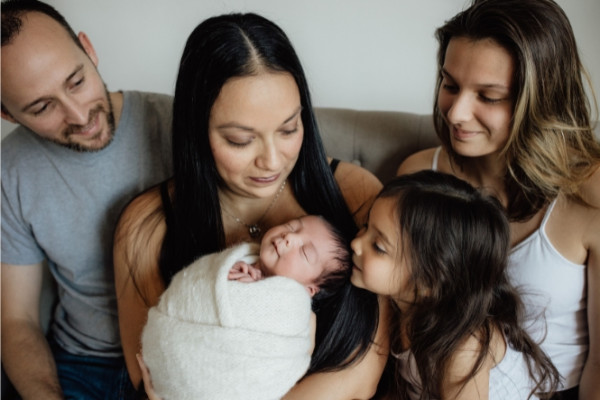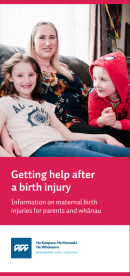You can now add Healthify as a preferred source on Google. Click here to see us when you search Google.
Maternal birth injuries
Injuries that can happen as a result of childbirth and how ACC can help
Key points about maternal birth injuries
- The birth of a pēpi (baby) is a life-changing moment for you and your whānau.
- However, it can also lead to injuries for the birthing parent which take time to recover from.
- If you experienced an injury relating to a birth which happened on or after 1 October 2022 in Aotearoa New Zealand, you can apply to the Accident Compensation Corporation (ACC) for assistance to help you recover.
- Find out which injuries and treatments are covered by ACC and when to seek help following the birth of your pēpi.
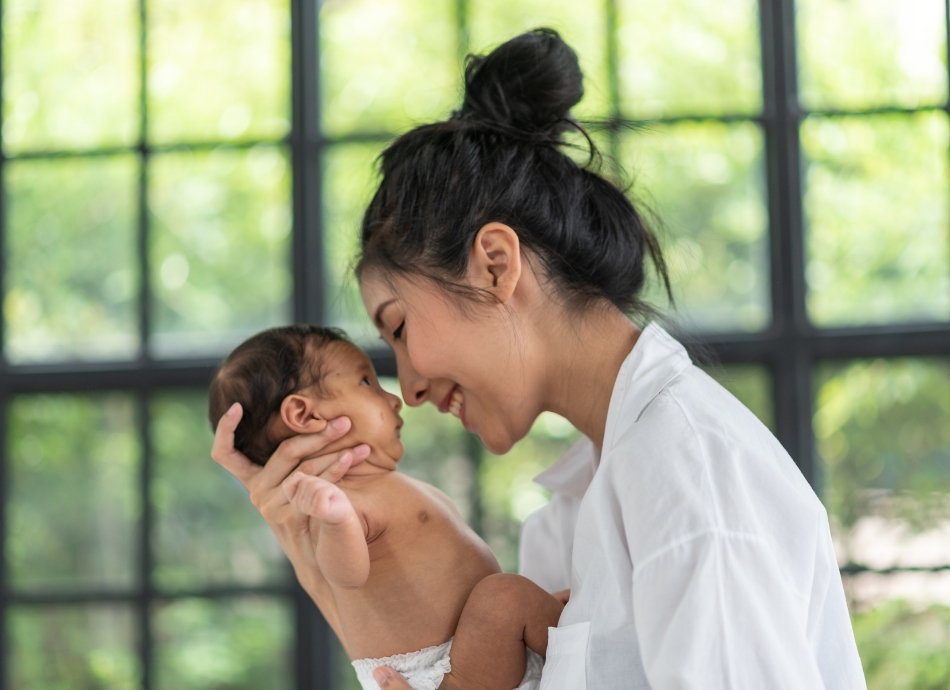
Maternal birth injuries can have long-lasting effects so it's important you get treatment and support early on. This will help you recover faster and reduce the impact of related injuries in the future.
Your midwife, doctor, nurse, physiotherapist or other healthcare provider can lodge an Accident Compensation Corporation (ACC) claim for you after you’ve been diagnosed with an injury. This might be straight away after the birth of a baby while you’re in the hospital, or sometime after birth when it’s been identified you need further support and care for your injury.
Learn more about how a claim is put in on your behalf(external link).
A recent amendment to the Accident Compensation Act 2021 in Aotearoa New Zealand came into effect from 1 October 2022. The amendment extended the meaning of the term ‘accident’ so that it now includes “an application of a force or a resistance internal to the human body at any time from the onset of labour to the completion of delivery that results in an injury described in Schedule 3A to a person who gives birth.” Put simply, this means that if you are giving birth (or gave birth on or after 1 October 2022) and experience one or more of a set of traumatic injuries during your labour or birth, you can apply for assistance from ACC to help with your recovery.
What is covered?
The following list outlines the birth injuries covered by ACC, the prevalence (or how common they are) if known, and provides a brief description of each.
- Anterior wall prolapse, posterior wall prolapse, or uterine prolapse: When a pelvic organ, such as your bladder or bowel, bulges into your vaginal canal, or when weakening of the muscles and tissue in your pelvis lets your uterus drop down (common).
- Coccyx fracture or dislocation: The coccyx is your tailbone, the final portion of your spine. The forces of childbirth can sometimes fracture or dislocate it (prevalence unknown).
- Levator ani avulsion – pulling away of the levator ani muscle from where it attaches to the pubic bone (fairly common).
- Obstetric anal sphincter injury tears or tears to the perineum, labia, vagina, vulva, clitoris, cervix, rectum, anus, or urethra: Tears or grazes in these areas can happen during vaginal deliveries (minor ones are relatively common, major ones far less common).
- Obstetric fistula (including vesicovaginal, colovaginal, and ureterovaginal) – a fistula is an abnormal connection, or tunnel, in the tissues between your vagina and bowel or bladder (very rare in Aotearoa New Zealand).
- Obstetric haematoma of pelvis: Damage to blood vessels during delivery can cause blood to collect in the pelvic space (rare).
- Post-partum uterine inversion: When your uterus turns partially or completely inside out during the birth process (rare)
- Pubic ramus fracture: Fracture of the bones at the front of the pelvis (prevalence unknown).
- Pudendal neuropathy: Ongoing pelvic symptoms (pain, numbness, dysfunction) from damage to the pudendal nerve (prevalence unknown).
- Ruptured uterus during labour: A tear in the wall of the uterus (rare).
- Symphysis pubis capsule or ligament tear – the pubic symphysis is the joint in the middle of the pubic rami bones at the front of the pelvis. It’s made of cartilage and ligaments, and normally loosens to allow space for the baby to pass through (prevalence unknown).
What's not covered?
ACC is limited by New Zealand legislation in what it can and can’t cover as maternal birth injuries. Things ACC can’t cover as a maternal birth injury include:
- any of the listed injuries that occurred prior to 1 October 2022
- pregnancy-related injuries or illness
- maternal birth injuries not listed above
- injury to pēpi (baby)
If you don’t meet these criteria, either because your injury isn’t one of the ones listed, or it happened before 1 October 2022, talk to your healthcare team about what support is available.
Once your claim is accepted, you can get the support you need from ACC. This might include physiotherapy or other specialist treatment or rehabilitation, support at home, or help with other costs.
Your lead maternity carer (LMC), doctor, nurse practitioner or other healthcare provider will be able to refer you for further treatment. Once you have an accepted ACC claim you can also contact your local ACC-registered treatment provider (eg, a physiotherapist) directly to make an appointment.
A wide range of treatments and services can be paid for by ACC, eg, hospital treatment including surgery, physiotherapy, counselling, nurse services and radiology. In some cases ACC may only pay part of the cost and your treatment provider will ask you to pay the rest. Read more about what treatment can be funded by ACC(external link).
Traditional rongoā Māori healing services may be funded as a rehabilitation option if you’re injured. This is part of ACC’s kaupapa Māori health service pathway, which aims to provide culturally appropriate care to māmā, birthing parents and whānau. These services include mirimiri (bodywork), whitiwhiti korero (support and advice) and karakia (prayer). Read more about accessing rongoā Māori treatment(external link).
If you would like more information, visit the ACC website(external link) or call their customer service line (0800 101 996) between 8am and 6pm Monday to Friday.
After a pregnancy and birth your body will need time to recover. There are many things which can happen, although not every new mother experiences them.
Normal reactions
- Feeling tired: Many new parents feel tired for the first few days, or even weeks, after giving birth. Not only are you recovering from the delivery process, but now you’re also caring for a baby. Try to rest when your baby does and take advantage of help when offered.
- Feeling sad: It’s normal to feel down or have the ‘baby blues’ as it’s often called, around 3 to 5 days after giving birth. This is caused by hormone changes. Know that you're not alone. Up to 80% of women struggle with feeling sad the first few weeks after having a baby. Talk to your lead maternity carer (LMC), who will help you with strategies to support you during this time. Read more about perinatal depression.
- Abdominal pain: As your uterus returns to its normal size and shape, which can take up to 6 weeks, you may feel pain in your lower belly. These are known as afterpains. Most of these pains are dull, but they may feel more intense as you breastfeed your baby.
- Constipation: Many birthing parents experience constipation (hard to pass faeces/poo) in the days following childbirth. This could be due to pain-relieving medication or the anaesthesia you received in the hospital and should get better after a few days. Read more about constipation.
- Haemorrhoids: You could develop haemorrhoids (also known as piles), which are swollen and inflamed veins in the rectum and anus that can be painful and cause bleeding. These should shrink over time but there are medicines to help you that your midwife can prescribe. Read more about haemorrhoids.
- Sore perineum: For several weeks after giving birth, you may feel pain in the perineum, the area around your vagina and anus, especially if you had a vaginal birth and had stitches or tearing. Plunket has guidance on what you can do at home to ease the pain(external link).
- Incontinence: Your pelvic floor muscles often become weaker during pregnancy and childbirth, so it’s not unusual to leak a little urine when you sneeze, cough or exercise. It’s important to discuss these concerns with your LMC or healthcare provider so they can provide advice on helpful exercises and other support. You should see improvement in about 6 weeks after giving birth. It’s not normal for incontinence to be an ongoing childbirth-related problem so it’s important to seek help and receive the necessary care to ensure that this completely resolves. Read more about bladder control problems.
- Sore nipples and breasts: If you’re breastfeeding, you could experience sore or cracked nipples and breasts, especially in the first few days. Seek advice from your LMC if the pain continues.
- Vaginal bleeding and discharge: After giving birth, it's normal to have vaginal bleeding and discharge, even if you had a caesarean section (C-section). Expect this to be heavier at first, for up to 10 days, but then gradually get lighter. Light bleeding and spotting can last up to 6 weeks after delivery.
- Fluid retention: The swollen hands, feet, or legs you may experience during pregnancy doesn't always go away immediately after giving birth. Your body may continue to retain water due to an increase in a hormone called progesterone. It shouldn't last more than a week after delivery.
- Sweating and hair loss: You may find yourself sweating more, especially when you sleep, or notice your hair falling out more than usual. This is due to changes in hormones and is only temporary.
Although these things are to be expected after having your pēpi, if any of them continue after the first few weeks, talk to your healthcare provider or LMC. They will be able to check that everything is normal and provide you with treatment or support if needed.
It will take your body a while to recover from the pregnancy and birth process but if you have ongoing pain, swelling or bleeding it might mean something is wrong. Listen to your body and if something doesn’t feel right, talk to your healthcare provider.
Things to look out for are:
- heavy vaginal bleeding that continues to increase and soaks a maternity pad in less than 30 minutes, or passing large blood clots (lumps of blood)
- chills of less than 36°C or a fever of more than 38°C
- fainting or dizziness
- changes to your vision or a severe, persistent headache
- painful urination or difficulty urinating (passing urine/pee/mimi)
- vaginal discharge with a strong odour
- heart palpitations (irregular heartbeats), chest pain or difficulty breathing
- vomiting (being sick)
- the wound from your C-section or episiotomy being red, swollen, or has pus
- abdominal (lower belly) pain that’s getting worse, or new abdominal pain
- sore breasts that are red or feel hot to the touch
- pain in your legs with redness or swelling
- increased swelling in your legs, feet or hands
- incontinence that lasts more than 6 weeks
- passing gas, faeces (poo), urine, or pus from your vagina
- prolonged sadness, significant anxiety, or other significant changes in mood or energy, that make it hard for you to complete daily tasks
- pain during and after sex
- a dragging sensation or feeling of heaviness in your pelvic region.
- pain when walking and sitting that continues several weeks after the birth.
If you experience any of these, contact your healthcare provider for advice and support.
As well as the support provided through ACC, there are organisations and groups providing support for people who have experienced birth-related trauma. The sites below provide some options:
Birth Trauma in New Zealand(external link)
Perinatal Anxiety & Depression Aotearoa(external link)
Australasian BirthTrauma Association(external link)
Apps
Mental health and wellbeing apps for pregnancy and postpartum depression
Pregnancy, baby care and parenting apps
Brochures
Getting help after a birth injury(external link) ACC, NZ
Pelvic organ prolapse(external link) RANZCOG, Australia and NZ
The first few weeks following birth(external link) RANZCOG, Australia and NZ
References
Cover for maternal birth injuries(external link) ACC, NZ, 2022
Pubic rami fracture(external link) NHS Foundation, UK
Birth injury (to the mother)(external link) Pregnancy, Birth & Baby, Australian Govt
What’s normal and what’s not after giving birth(external link) ACC, NZ, 2023
Brochures
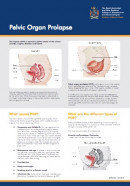
Pelvic organ prolapse
RANZCOG, Australia and NZ
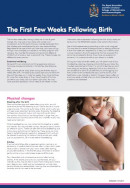
The first few weeks following birth
RANZCOG, Australia and NZ
Credits: Healthify editorial team. Healthify is brought to you by Health Navigator Charitable Trust.
Reviewed by: ACC maternal birth injury team.
Last reviewed:


